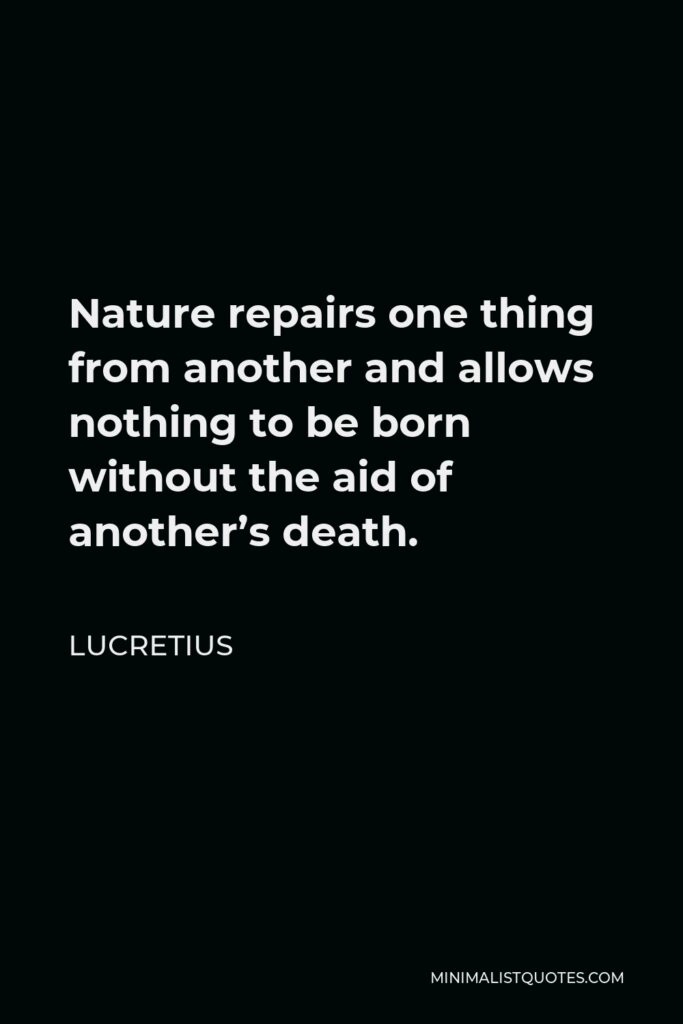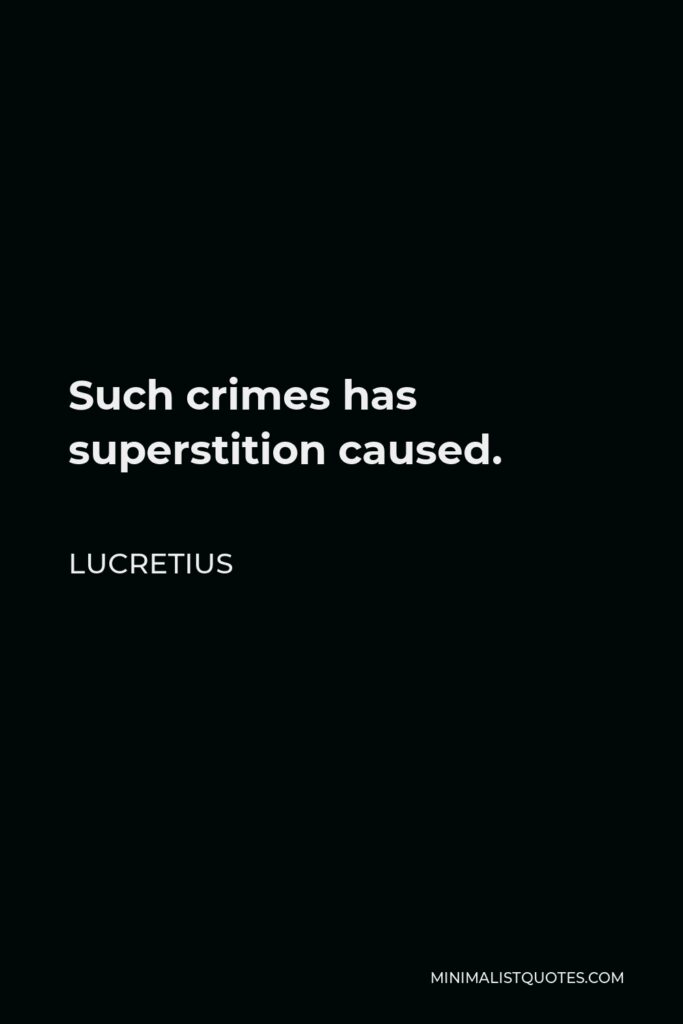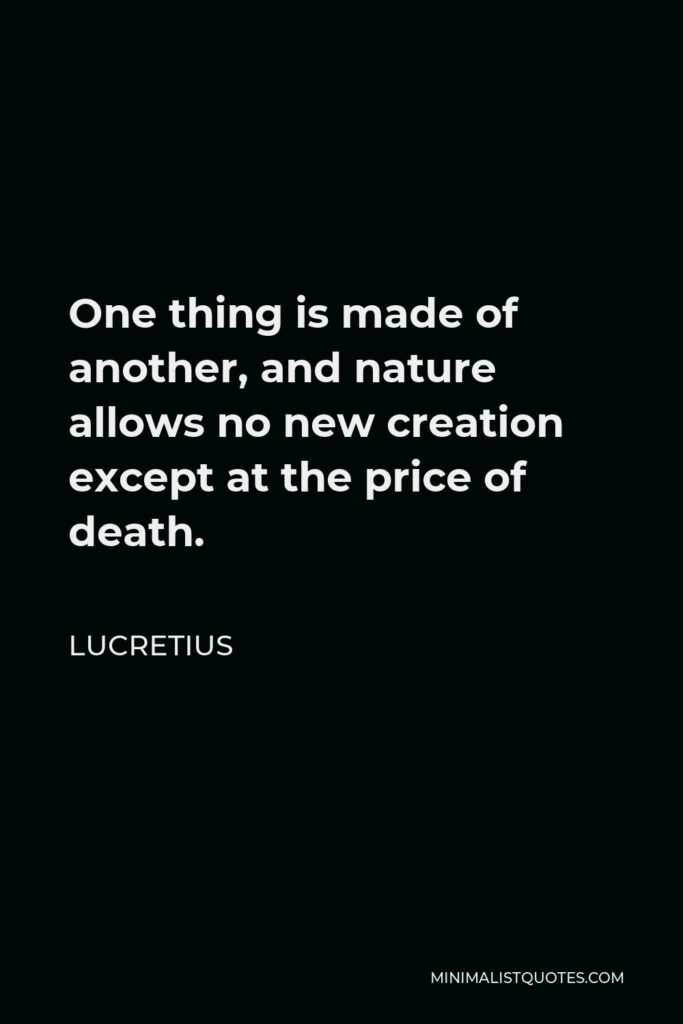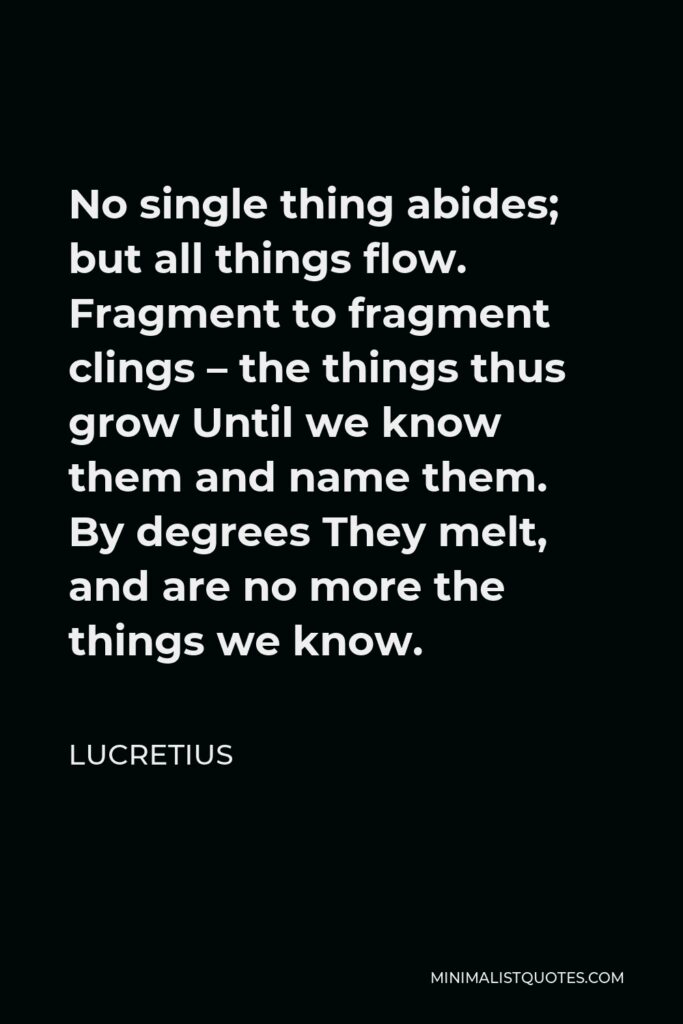Nature repairs one thing from another and allows nothing to be born without the aid of another’s death.
LUCRETIUSRelated Topics
Anand Thakur



Nature repairs one thing from another and allows nothing to be born without the aid of another’s death.
LUCRETIUS

Rest, brother, rest. Have you done ill or well Rest, rest, There is no God, no gods who dwell Crowned with avenging righteousness on high Nor frowning ministers of their hate in hell.
LUCRETIUS

Such crimes has superstition caused.
LUCRETIUS

The old must always make way for the new, and one thing must be built out of the ruins of another. There is no murky pit of hell awaiting anyone.
LUCRETIUS

The body searches for that which has injured the mind with love.
LUCRETIUS

One thing is made of another, and nature allows no new creation except at the price of death.
LUCRETIUS

Only religion can lead to such evil.
LUCRETIUS

We in the light sometimes fear what is no more to be feared than the things children in the dark hold in terror and imagine will come true.
LUCRETIUS

No single thing abides; but all things flow. Fragment to fragment clings – the things thus grow Until we know them and name them. By degrees They melt, and are no more the things we know.
LUCRETIUS

The dreadful fear of hell is to be driven out, which disturbs the life of man and renders it miserable, overcasting all things with the blackness of darkness, and leaving no pure, unalloyed pleasure.
LUCRETIUS

For thee the wonder-working earth puts forth sweet flowers.
LUCRETIUS

From the heart of the fountain of delight rises a jet of bitterness that tortures us among the very flowers.
LUCRETIUS

The mask is torn off, while the reality remains
LUCRETIUS

We plainly perceive that the mind strengthens and decays with the body.
LUCRETIUS

Too often in time past, religion has brought forth criminal and shameful actions… How many evils has religion caused?
LUCRETIUS

Forbear to spew out reason from your mind, but rather ponder everything with keen judgment; and if it seems true, own yourself vanquished, but, if it is false, gird up your loins to fight.
LUCRETIUS